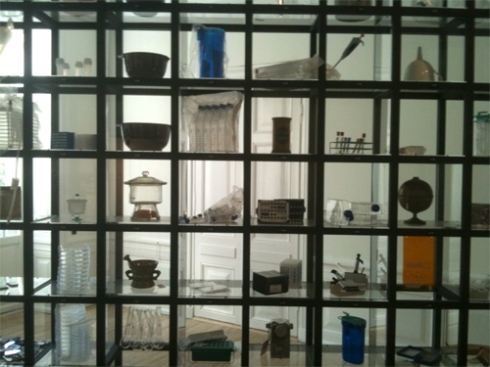In 2000, a group of university museum people around Europe founded UNIVERSEUM as a loose network for the preservation of the European academic heritage.
So far it’s had an informal structure, which has been part of the charm of the organisation. But at the 2010 annual meeting in Uppsala last June, it was decided to organise it more formally with statutes, membership, fees etc — and the following aims:
- It aims at academic heritage in the broad sense – not only university museums and collections, but also monuments, buildings, archives, and libraries.
- Its geographical scope is European academic heritage (although anyone from outside Europe can become a UNIVERSEUM member).
- In terms of recognition, it targets the European political and academic community, particularly the European University Association (EUA), the Coimbra Group, other European university organisations, the European Union, the Council of Europe, etc.
Anyone (individual or institution) with an interest on European academic heritage can now become a member. See the statutes here.
The interim executive committee — Thomas Bremer, University of Halle-Wittenberg; Marta Lourenço, University of Lisbon;
Laetitia Maison, University of Bordeaux, France; Sébastien Soubiran, University of Strasbourg; Klaus Staubermann, National Museums Scotland; Sofia Talas, University of Padua; Roland Wittje, University of Regensburg — invites to the next UNIVERSEUM Network Meeting to be held at the University of Padova, 26-29 May, 2011. A call for papers will be announced soonish. More info from Sébastien Soubiran, University of Strasbourg,
sebastien.soubiran@unistra.fr.


 Luke Jerram has just finished a new glass sculpture of a Plasmodium falciparum
Luke Jerram has just finished a new glass sculpture of a Plasmodium falciparum  If you happen to pass through Copenhagen in the weekend, don’t miss the opportunity to visit Medical Museion on Friday night. We’re open 6-12pm during the Copenhagen Culture Night, with the following highlights:
If you happen to pass through Copenhagen in the weekend, don’t miss the opportunity to visit Medical Museion on Friday night. We’re open 6-12pm during the Copenhagen Culture Night, with the following highlights: Together with
Together with 